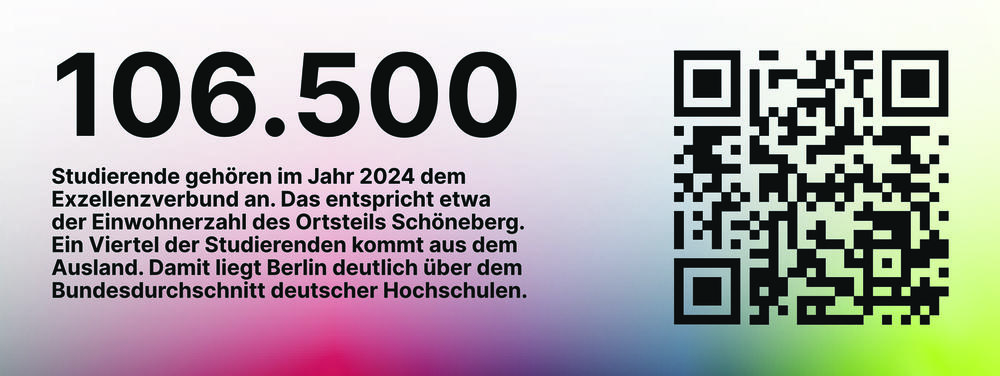The 100 most important minds in Berlin science. Episode 4: They analyze power and freedom
Oct 02, 2025
The longest-standing yet most vulnerable: what keeps a democracy alive? These researchers compare forms of government, analyze unjust regimes, and are concerned about academic freedom.
- Dr. Romy Jaster (Humboldt-Universität zu Berlin): The philosopher heads the “Philosophy and Public Sphere” department and conducts research on disinformation. In the “Forum for Debate Culture,” she teaches people how to argue. Now she is also taking on the role of spokesperson for the new project “Rethinking Disinformation.”
-
Prof. Dr. Khanna Omarkhali (Freie Universität Berlin): She is considered one of the leading scholars in the field of Kurdology. Khanna Omarkhali researches theology, oral traditions, and social structures of the Yazidis. For her work, she was awarded the 2025 Jemal Nebez Prize this year. “Her tireless commitment to Yazidi traditions has strengthened the voices of the Yazidis and their resilience in the face of persecution and genocide,” the jury said in its statement.
-
Prof. Dr. Pauline Endres de Oliveira and Prof. Dr. Aileen Edele (both Humboldt-Universität zu Berlin): Together, the two scientists head the Berlin Institute for Empirical Integration and Migration Research at Humboldt-Universität. Edele focuses on multilingualism, identity issues, and integration in schools. Oliviera specializes in migration law. She also coordinates the training and counseling of the student association “Refugee Law Clinic,” which provides free legal advice to refugees.
-
Dr. Deborah Mühlebach (Freie Universität Berlin): What enables people to act critically, and what prevents them from doing so? Deborah Mühlebach is investigating this question at Freie Universität. With €1.5 million in funding, the philosopher is now setting up her own Emmy Noether research group.
-
Prof. Dr. Tanja Börzel (Freie Universität Berlin): Researchers at the SCRIPTS Cluster of Excellence, headed by Tanja Börzel, want to find out why populism, crises, and other external influences pose such a challenge to liberal societies—and why some democracies withstand these challenges while others are transformed into autocracies. The project has once again won acclaim in the Excellence Competition and will receive funding for another seven years.
They were all featured today in the Tagesspiegel (October 2, 2025) as part of the series “The 100 Most Important People in Berlin Science". More in Tagesspiegel (T+, in German).

